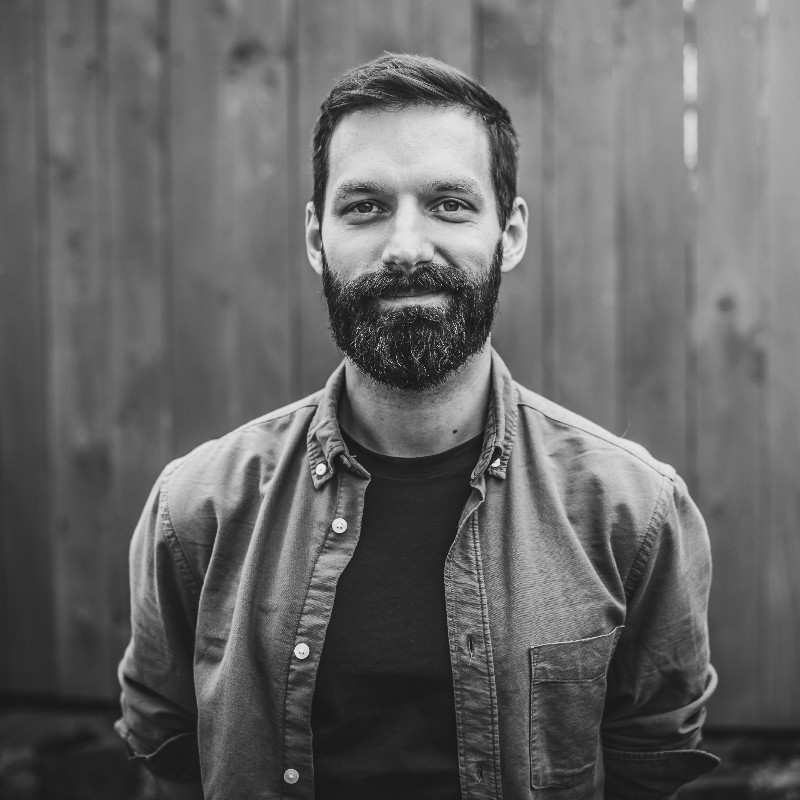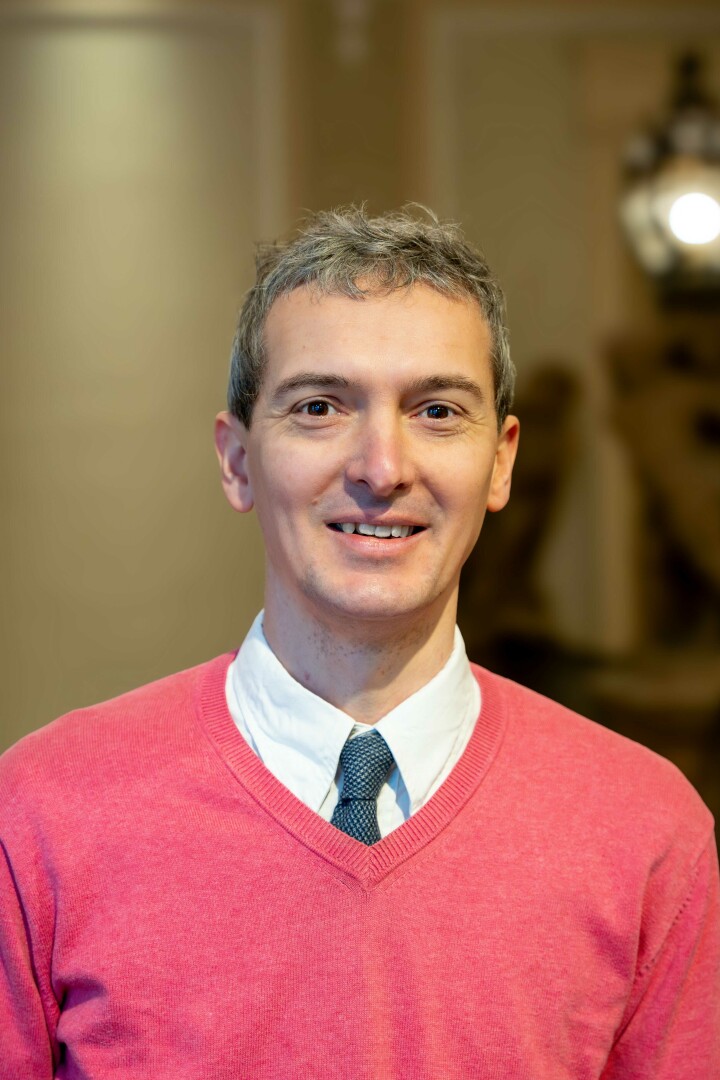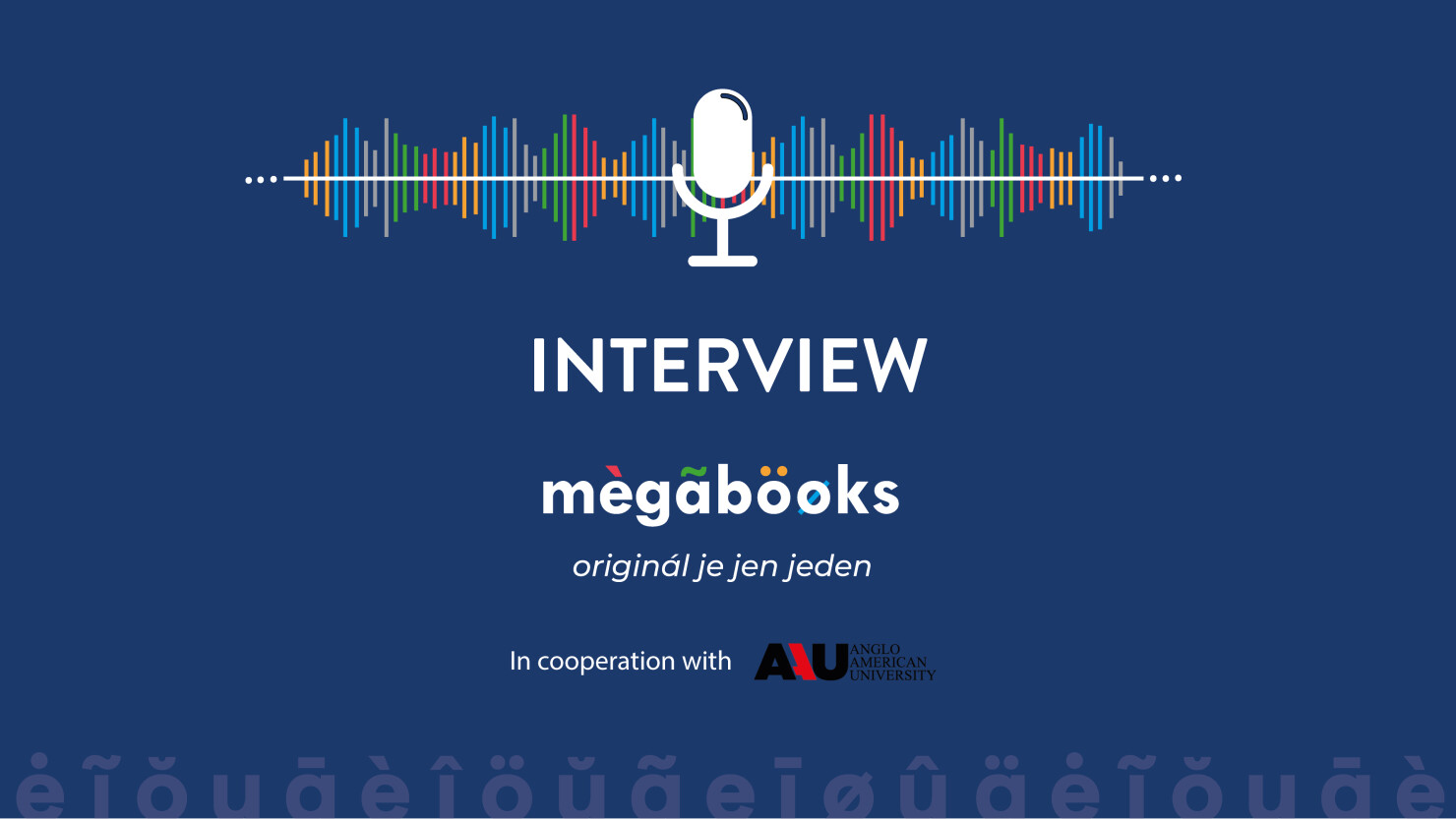Robin Maialeh – Critical Theory and Economics: Philosophical Notes on Contemporary
Robin Maialeh, PhD is the director of the Research Institute for Labour and Social Affairs (RILSA). He has studied and conducted research at several prestigious universities and was awarded his PhD by the Prague University of Economics and Business. As well as being the director of RILSA, he teaches economics at universities with particular research interests in socioeconomic inequalities, the political economy and the methodology of science. Outside of his profession, he enjoys various sports activities and art.
Robin, recently you published your second book. Let us start with that. Could you share with our readers what the book is about?
The book focuses on developing economics in the context of critical theory. Economics as a whole is the only area of knowledge among the social sciences and humanities that hasn’t been systematically developed within this context. The book explains in detail how rationality in competitive markets may lead to the irrational development of the economy as a whole, which can be observed via a range of indefensible socioeconomic disparities. More generally, I attempt to express in a theoretical way how societal conditions determine the behaviour of individuals and how such behaviour further reinforces the prevailing conditions.
Two questions: Why do you think that is? And why was economics specifically “forgotten” about? The second part of your answer sounds a bit like a description of a vicious circle. Is there a way out?
Economics has diverged significantly from the other social sciences over the last 100 years as the mathematical component became increasingly dominant. In the last few decades, economics has been further empiricised due to the increasing amount of data and its availability. Critical theory, however, treats these developments almost with disdain; but they cannot be avoided if we want to address these issues with scientific precision. Critical theory must be able to integrate them. On the other hand, critical theory serves to uncover a plethora of fallacies, for example the idea that via the simple summation of individual empirical realities we can obtain a knowledge of the whole. There are also many other obsessions which, as a rule, blur the reality rather than reveal it, with which, however, economics continues to operate quite normally. Critical theory can provide a very stimulating reflection in this respect.
Considering the idea of a vicious circle, it is not the aim of this book to determine a way to escape it, but rather to point out how we, as a society, function within it. This realisation must be at the forefront of all the efforts to progress – a sort of rehabilitation of enlightened reason, if you will, when we manage to escape the conditions that oppress us.
“Freedom of choice is reduced to superficial differentiation between consumer goods or the means of enhancing competitiveness. As rationality has become strictly subjective and tied to the mere optimisation of means, the rationalisation process is being taken over by proceduralism, according to which the objective-dominated subject is no longer needed – the agent as a rational autonomous subject is decaying.“ (p. 123)
Who is the target readership? Where do you think the book will find its place?
This is not the kind of book that you write in the hopes that it will end up on the bestseller list; it is intended to be more of an addition to university libraries. I think it could appeal to philosophers who wish to better understand the fundamental laws of market allocation and to economists who wish to intellectually move beyond the boundaries they have set for themselves, regarding the content itself or the methods applied. And, since the book examines inequalities in a relatively general way, it might also find its place across the whole range of social sciences and humanities.
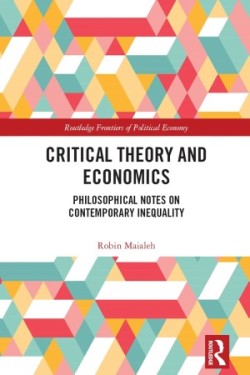
Maialeh, Robin AngličtinaPevná vazbaTisk na objednávku
Taylor & Francis Ltd
ISBN: 9780367222208
Tisk na objednávku
Předpokládané dodání v pátek, 28. února 2025
The expression ‘boundaries they have set for themselves’ caught my attention. Should we understand it as a structural issue, a direct consequence of the lack of critical thinking in the process of acquiring knowledge?
Something that we might refer to as the ontologisation of methods has taken place in economics. Tom Sargent, the Nobel Prize laureate for economics has expanded on this issue – the perfect mastery of methods as tools is supposed to teach us what good questions are. The tool initiates the research questions, not the other way around. Put simply, if all you have us a hammer, then all the problems begin to look like nails. In other words, we are not able to define problems, we have no freedom to ask questions, let alone to set societal goals. As a social scientist, I cannot accept this; critical thinking must go beyond methods.
“The dialectic nature of the model defines how structurally genetic market forces govern individual behaviour, as well as how individual behaviour shapes those structurally genetic forces. The resulting inequality does not stem from a unidimensional determinist model which sees the economic base as the sole causal factor of socioeconomic dynamics, rather it is rooted in complex relationships between the various aspects of society which are structured by market imperatives.“ (p. 124)
Your first book was published by Springer Nature; why did you choose Routledge as the publisher for your second book?
Springer specialises in technically oriented literature. It has been publishing the most significant works in the field of dynamic models for decades. Routledge, on the other hand, dominates the fields of political economy and philosophy. My choice reflects these factors.
Could you shortly describe the process of publishing an academic work abroad? How big a difference is there between publishers and did the fact that you were already a published author play a role? Did you approach the publishers personally?
I always initiate contact with publishers, usually three for every pitch. So far, I’ve always been lucky to receive at least one acceptance. If your idea is approved then you prepare a detailed book proposal, which is then reviewed by at least three academics in the given field. After receiving reviews, the author responds to the critiques and answers any questions. Based on this process, the publishing house then decides whether they are interested in publishing the work. If the answer is yes, it’s time to write! At the end of this process, you’re confronted with another set of reviews, which is followed by the production phase.
So unlike fiction, you go to the publishers with a concept rather than a finished book?
Yes, that’s been my experience so far. But publishing academic literature is a category of its own. For instance, editors don’t correct the language aspect of the book at all, they focus solely on the content, factuality, the ‘attractiveness’ of the research questions and the findings. I assume that the criteria are vastly different for fiction.
Well, the French got it right by calling fiction belles-lettres. What about the language barrier? Is it difficult for you to switch into English when writing? Or do you do all your preparations in Czech?
I write in English. With my first book, this wasn’t an issue at all since it consisted of more equations than text and I acquired all my knowledge in the field in English. Moreover, I teach related topics in English, so the process was pretty straightforward.
When it came to my second book, which delves much more into the realm of philosophy, the language aspect was significantly more challenging. To write such a book you need relatively sharp language skills since you’re dealing with etymological and semantic nuances in several languages; you have to work with countless terms and use them in the right context, etc. Moreover, a good portion of my research was based on German sources, which provided language challenges of its own - such as its usage of compound words. Czech tends to be quite useful in addressing these translational "head scratchers" thanks to its flowery and expressive nature. Sometimes it helps to bridge the gap between the original meaning and the translation way better than English, the language of empiricists. That’s perhaps why we appreciate Shakespeare – for his ability to create wonderful things within such language limits.
So I assume you’re a fan of Prof. Hilský’s translations?
Absolutely, although the majority of Shakespeare we have at home are older translations by Erik Adolf Saudek or Zdeněk Urbánek. I’m planning to read Shakespeare to my kids so that they’re prepared for all the dilemmas that await them in life; however, it’s Čapek’s fairytales for now.
You’re also involved in projects with other authors. What is the difference between publishing your own projects and working on a project as a group?
We’ve just completed a book based on the independent research of our institute, which discusses the most urgent topics facing Czech society and the economy: migration, the energy crisis, the situation in the labour market and inflation. The authors include colleagues from respected institutions in Germany, the Netherlands and Great Britain. The book is due to be published at the end of the year by Palgrave Macmillan. I’m also working on several other research projects with my colleagues across several countries and continents. A good number of our findings are currently being subjected to the review process, so the publication date is still some time away.
Generally, the demands regarding the quality of publications are increasing and interdisciplinary publications are becoming more common, which inevitably leads to the greater need for intense cooperation with other authors. The undeniable advantage of this is that you don’t have to be, and, to be honest, you cannot hope to be, an expert in every single field, which saves a lot of time. On the other hand, the final product is necessarily the result of compromises between the members of the group
On a lighter note, who bears the brunt of the work, then? It would hardly be possible to sit together and discuss every single sentence and thought. I can imagine that compromise is necessary, but giving the text a formal form could be challenging.
It differs with each project. It depends, for example, on the main aim of the publication. Generally, the most important role is that of the lead researcher, who establishes the research questions and methodology, conceptually collects the findings and coordinates the research activities. This was, for example, the case of the new book with Palgrave, parts of which I wrote and co-wrote and the whole of which I was responsible for editing. My colleagues sent me their assigned contributions and I tied the whole thing together. We also reviewed each other’s work and returned it for correction and rewriting. And considering the extent to which even research has been ‘industrialised’ into its current form, the process is similar to other fields – we attempt to highlight the contributor’s strengths and eliminate the weaknesses.
You mentioned independent research. Recently there’s been a lot of talk about the Czech government’s stance towards the amendment of the law regarding public research institutes, which reminds us of the situation we have witnessed in Hungary. How could these proposed amendments reflect on your Institute?
If these amendments are indeed approved, it will lead to massive changes in the area of research. I have shared my worries with the prime minister and other relevant ministers. At this moment, I prefer not to comment further on this issue.
“Market allocation evens out all the fundamental differences – institutions under the rule of the market, be they universities, firms or hospitals, are exempt from their specific contents since they are subject to universal market imperatives. On the other hand, the markets offer various individualised features within the operation thereof; hence, actors in the market have the option to be superficially differentiated as compensation for their fundamental uniformity.“ (p. 123)
Academic work, managerial position in the public sector, family, kids. How do you manage it all?
The research work itself is pretty flexible, though as a scientist your work is never done and there is always more to discover. Regarding one’s private life, it is necessary to set boundaries for yourself and your work. In practice it often works out differently, sometimes I end up writing my books in the evening with kids crawling all over me. Trying to make it work with my current position is even harder, you have no set vacation days, no weekends. On the other hand, I remember the contemptuous stances of Komenský and Nietzsche concerning the hustle of work. But I know that this is just a phase of my career.
Isn’t that a bit of a paradox? It might seem like you glorify work.
I’m not a workaholic at all; I’m not willing to dedicate my entire life to it. But I am honoured to serve in public office; I respect it and I wish to pay my dues to society by doing the best I can. Besides, I am still working with the perhaps naïve idea that I can make a difference in this position, and I don’t want to waste such an opportunity.
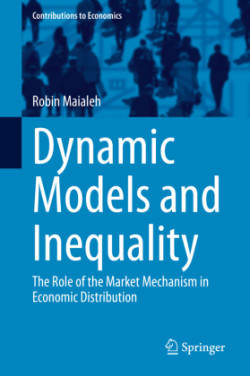
Maialeh, Robin AngličtinaMěkká vazbaTisk na objednávku
Springer, Berlin
ISBN: 9783030463151
Tisk na objednávku
Předpokládané dodání v pátek, 28. února 2025
Getting back to the very beginning of your career, when did the idea of academically examining inequalities settle in your mind? Is it perhaps connected to your family roots?
Fighting injustice and unfreedom is deeply ingrained in my family, perhaps because most of my family comes from Syria, where justice and freedom cannot be taken for granted. But I don’t think that was a huge deciding factor. My values will probably stay with me forever. However, even though I intend to remain active in academia in one way or another, it is not the only area of interest for me.
Lastly, I always enjoy browsing people’s bookshelves whenever I get the chance. What would I find on yours? I’ve heard you were a passionate reader even in your student years. What books (surely there isn’t just one) influenced you the most and why?
The books that influenced me the most were the Dialectic of Enlightenment by Adorno and Horkheimer and the Dialectic of the Concrete by Karel Kosík. Of the more readable publications, probably The Art of Loving and To Have or to Be by Erich Fromm. Generally, I was also interested in the work of J.P. Sartre, Franz Kafka and Saint-Exupéry. Although there is probably no common link between them, I took great pleasure in the way these authors discuss some of the essential questions of human experience and society as a whole. But, of course, the choice also depended on the life stage I found myself in – I can imagine that they would make a different impression on me now than they did when I first read them.
Article translated by Gabriela Ježková
Author's latest publications:

